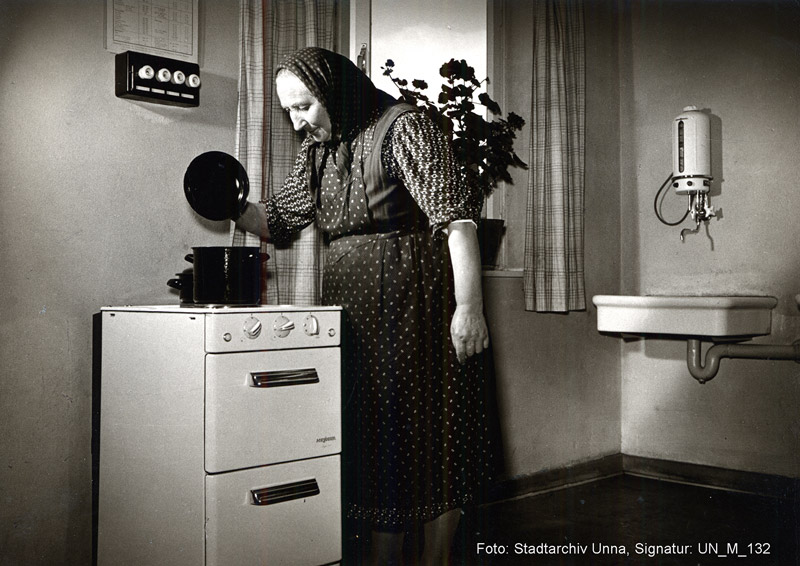The Landesstelle Unna-Massen was for many decades a central collecting point for people coming to North Rhine Westphalia from crisis regions.
The Landesstelle for emigrants, immigrants and foreign refugees was set up in 1951 when accommodation was quickly needed for refugees and expelled persons. The central transit camp at Siegen took in these people immediately after World War II. Looking for a suitable location, state-owned real estate was found in the (at that time) independent community of Massen. The idea of setting up a „camp“ was not judged to be good. Settlement-based structures were instead created – a sports ground, kindergarten, school, church and hospital were built.
It was originally planned to close the Landesstelle after the flow of refugees had ebbed and to transform it into a miner’s settlement, but this was never carried out. Directly after its opening, thousands of people flowed into the facility and it remained this way in the following decades. Initially these people were mainly expelled persons and refugees from the East, but the following decades saw late resettlers and people from global crisis regions flowing to Massen, and the Landesstelle expanded.
The Landesstelle was used particularly in the 1980s and the 1990s: the Yugoslavian war and the collapse of the GDR and Soviet Union brought new waves of refugees and immigrants to the Landesstelle. After intake figures receded in the years after 2000, the end of the Landesstelle was decided upon – the facility finally closing on 30 June 2009. However, the State of NRW reactivated parts of the former Landesstelle in 2012, and with the inauguration of the Unna-Massen initial registration facility it once again opened the gates to accommodate refugees from Arabian and African countries.

Opportunity for cooking in the Landesstelle Unna-Massen.
Return to city map of historical locations
Return to list of historical locations